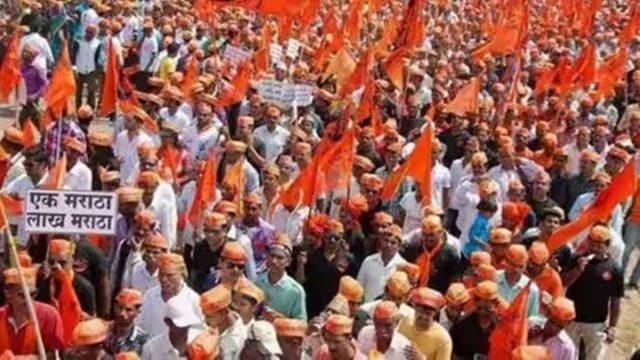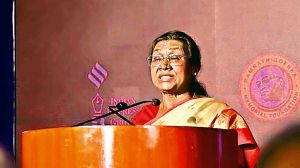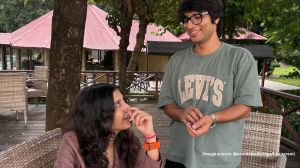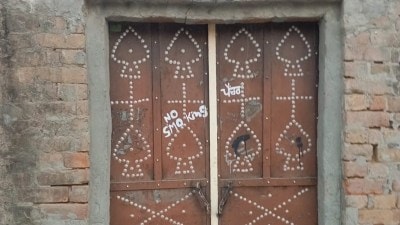Maratha survey faces fresh challenge: People refusing to share info
Highest number of residents refusing to share details is from non-slum areas, according to enumerators
 Over 3.5 lakh individuals — primarily state government employees — have been engaged in the survey to clear the path for granting reservation to the Maratha community. (Express File Photo)
Over 3.5 lakh individuals — primarily state government employees — have been engaged in the survey to clear the path for granting reservation to the Maratha community. (Express File Photo)If the task of completing a humungous survey to establish the “backwardness” of the Maratha community in nine days was not challenging enough, enumerators are now facing a new challenge of people declining to divulge the required information.
During the first six days of the ongoing survey, residents of nearly 10 per cent of the households in Mumbai that were to be enumerated declined to provide information.
Enumerators reported encountering the highest number of refusals in non-slum areas, attributing them to hesitancy and lack of awareness.
Over 3.5 lakh individuals — primarily state government employees — have been engaged in the survey to clear the path for granting reservation to the Maratha community. The time period granted for this by the Maharashtra State Commission for Backward Classes (MSCBC) was from January 23 to 31.
In Mumbai, the survey is being conducted by the BMC, which has deputed 30,000 of its staff for this work. Between January 23 and January 28, a total of 28.07 lakh houses in the city were earmarked for the survey, of which 2.69 lakh houses, constituting 9.61 per cent of survey sample, declined to participate.
When The Indian Express interviewed numerous enumerators, they identified various reasons for the challenges they faced. These included hesitation in responding to questions from unfamiliar individuals, particularly in non-slum areas. Additionally, enumerators noted difficulties arising from categorizing many Hindu and non-Hindu communities as “others” in the “MSBCC Survey” app.
“People in slum areas are generally more cooperative and patient in responding to the queries. We aren’t encountering significant issues there. However, our primary challenge lies in dealing with non-slum residents who display reluctance, particularly when it comes to answering even basic questions about caste and sub-castes,” said Sarika Kunde, 37, a community health volunteer from Dahisar.
VIDEO | Maratha quota activist Manoj Jarange’s supporters in Mumbai celebrate after the Maharashtra government accepted his demands. pic.twitter.com/iYEKijGgdd
— Press Trust of India (@PTI_News) January 27, 2024
According to the data available, the refusal rate is higher with male enumerators. An Solid Waste Management employee from BMC shared an incident where he was turned away by society guards while attempting to enter a building for the survey. “Despite presenting our ID card, the society denied us entry. Considering our daily targets, we cannot afford to spend hours arguing with them. Nevertheless, we report refusals to higher authorities for record-keeping,” he explained
The BMC has also requested the residents to cooperate. The local political leaders have been asked to sensitise the residents of their specific areas.
Simultaneously, the BMC administration urges citizens to permit their staff, equipped with an official letter, access to housing complex premises and respond to survey questions.
“It is necessary to sign a blank paper to validate the information provided. Subsequently, the document will be uploaded on the tablet, returned, and kept confidential, shared only with the commission,” said Sudhakar Shinde, assistant commissioner, BMC.
The city has approximately 39 lakh houses, and each house will be visited by the survey staff. To ensure that all houses are visited within nine days, the workforce assigned to this task needs to cover more than 4 lakh houses each day. As of Sunday, the BMC enumerators were able to reach 72 per cent of the houses in Mumbai.
During the survey, 5,70,984 houses were found closed. To accommodate the survey’s timeframe, the municipality permits early or late visits.







